UN Security Council Strongly Condemns Attacks On UAE, Saudi Arabia
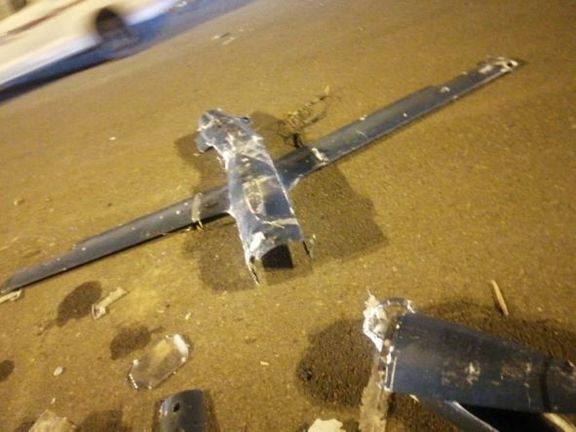
The UN Security Council on Friday stromgly condemned "the heinous terrorist attacks” in the UAE on Monday and in other sites in Saudi Arabia by the Houthis.

The UN Security Council on Friday stromgly condemned "the heinous terrorist attacks” in the UAE on Monday and in other sites in Saudi Arabia by the Houthis.
The council underlined the need to hold perpetrators “accountable and bring them to justice.”
Lana Nusseibeh, UAE's ambassador to the U.N., lauded the council for speaking “with one voice" and said the Houthi “terrorist attack is a clear threat to the entire international community.”
On Friday, a Saudi-led coalition airstrike hit a prison run by Yemen's Houthi rebels, killing at least 70 detainees and wounding dozens, a rebel minister said.
The strike was part of a pounding aerial offensive that hours earlier knocked the Arab world's poorest country off the internet.
The intense campaign comes after the Iran-backed Houthis claimed a drone and missile attack that struck inside the capital of the United Arab Emirates earlier in the week.
It marked a major escalation in the conflict, a brutal civil war in Yemen where the Saudi-led coalition, backed by the UAE, has battled the rebels since 2015.
Asked about Friday’s deadly coalition airstrike on the Saada prison, Nusseibeh referred to the coalition but also added that the alliance does everything to “abide by international law and proportionate response in all its military operations.”
Report by AP
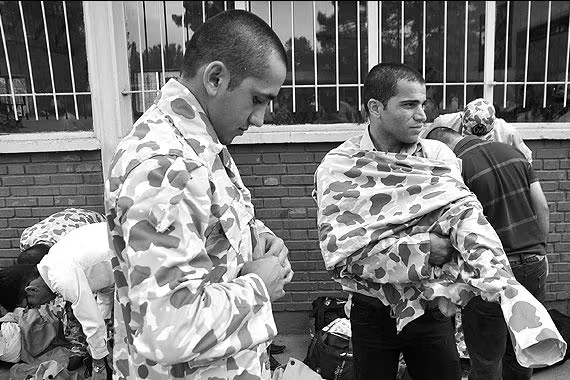
Iran says all the expats who haven’t served their compulsory conscription can pay €15,000 ($17,000) to buy their freedom from military service.
A member of the budget committee in the Iranian parliament, Mohammad-Reza Mirtajodini, said the plan only includes the absentees who are living abroad and at least five years have passed from their conscription due date.
He said the purpose of this law is that these people do not face any problem in traveling back to the country.
The new price for the service is in line with President Ebrahim Raisi’s efforts to encourage expats to return and invest in Iran’s cash-strapped economy that is struggling under heavy inflation and international sanctions.
According to Iran’s constitution, all men over 18 years old must serve in the military for about two years otherwise they cannot apply for a passport to leave the country. Most of them are drafted into the traditional Army, but some with the right connections serve with the Revolutionary Guard where conditions are much better.
In some especial cases, including being accepted by foreign universities, they can pay a hefty deposit and postpone their service, but the money is not refundable if they stay out of the country beyond the timespan of their education.
The offer is unlikely to have resonance among expat Iranian, who mostly left the country because of economic and social pressures.
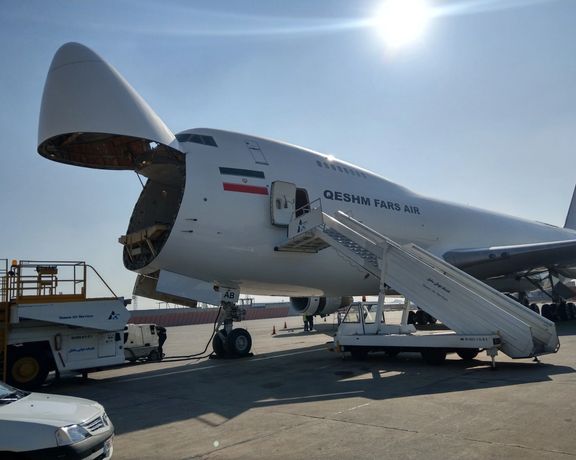
Flights by a sanctioned Iranian airline affiliated to the Revolutionary Guard to Myanmar have raised speculation of secretive military-to-military cooperation.
In an article published by Asia Times on Thursday, diplomatic sources based in Southeast Asia said the recent landings by planes owned by the Iranian cargo airline Qeshm Fars Air may have taken place to deliver weapons including guided missiles.
The sources said an Iranian delegation that landed in Myanmar on January 13 was either the second or third to visit since the military seized power in a coup on February 1, 2021.
According to data by flight tracker Flightradar24, a plane flew from Mashhad, Iran’s second-biggest city, to Myanmar last week and returned to Iran the following day.
Zin Mar Aung, the foreign minister of the shadow National Unity Government, said, “This is the second time I have noticed an Iran flight. It is understood [to be] communication related to military technology”, adding that “military relations between [Myanmar’s] military junta… and a country like Iran can be said to be a worrying situation, not only for atrocities against the Myanmar people but also from a regional and international security perspective”.
The US Treasury in 2019 imposed sanctions on Qeshm Fars Air that is linked to designated Iranian airline Mahan Air and Iran’s Islamic Revolutionary Guard Corps-Qods Force for allegedly transporting weapons to Tehran-backed groups Fatemiyoun Division and Zaynabiyoun Brigade in Syria.
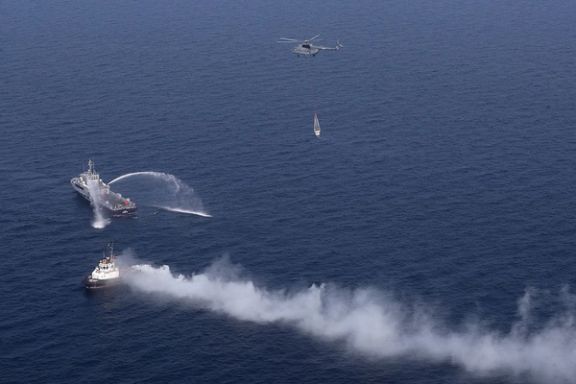
Iran, China and Russia held their third joint naval drills in the northern Indian Ocean on Friday, amid Tehran’s push to expand ties with the two Asian powers.
Navies from Iran's armed forces and Revolutionary Guards are taking part in the "2022 Marine Security Belt" exercise over an area of 17,000 square kilometers (6,560 square miles), Rear Admiral Mostafa Tajoldini, spokesman for the drills, told state TV.
The drills, which began in the early hours of Friday, will include various tactical exercises such as rescuing a burning vessel, releasing a hijacked vessel, and shooting at air targets at night.
The three countries started joint naval drills in 2019 in the Indian Ocean and the Sea of Oman area, Tajoldini said.
"The purpose of this drill is to strengthen security and its foundations in the region, and to expand multilateral cooperation between the three countries to jointly support world peace, maritime security and create a maritime community with a common future," Tajoldini said.
Since coming to office last June, Iran's hardline President Ebrahim Raisi has pursued a "look east" policy to deepen ties with China and Russia. Tehran joined the Shanghai Cooperation Organization in September, a central Asian security body led by Beijing and Moscow.
Foreign Minister Hossein Amirabdollahian visited China last week and Iran's president met his Russian counterpart in Moscow on Wednesday.
Reporting with Reuters
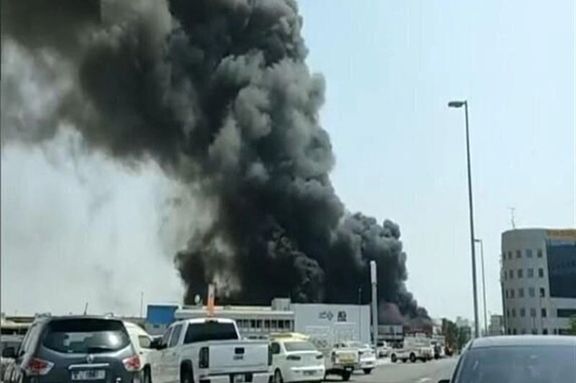
Cruise and ballistic missiles were used alongside drones in Monday's attack on the United Arab Emirates, and several weapons were intercepted, the UAE ambassador to the United States said.
It was the first time the UAE, which rarely discusses its security in public, had said missiles were used in the attack which killed three civilians in Abu Dhabi, and the first time it has claimed to have intercepted some of the weapons.
Yemen's Iran-backed Houthi group siad it carried out the attack with five ballistic missiles and several drones.
"Several attacks - a combination of cruise missiles, ballistic missiles and drones - targeted civilian sites in the UAE. Several were intercepted," UAE Ambassador Yousef Al Otaiba told an online panel hosted by the Jewish Institute for National Security of America (JINSA).
Many analysts and UN experts belive Iran is supplying the Houthis with the sophisticated weapons. Yemen is not known for having the technological capabilities needed to develop and manufacture missiles and drones.
In response to the attacks, US President Joe Biden said on Wednesday his administration was considering re-designating the Houthis a terrorist organization. The Biden administration lifted that designation last February; the UAE has called for it to be restored.
The UAE had "long left the Yemen war," Otaiba said. "Attacking a country that is not in combat makes a very clear case" to reinstate the Houthi terrorist designation.
With reporting by Reuters
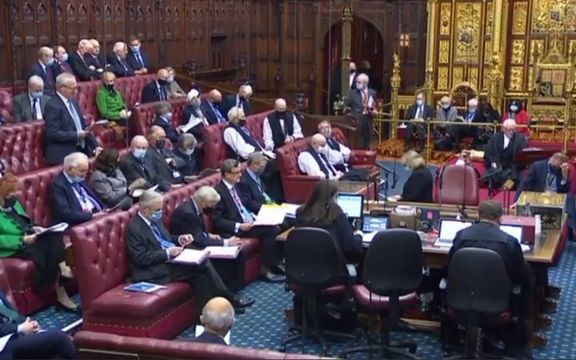
A debate in the British House of Lords Wednesday highlighted pressure for the United Kingdom proscribing Iran’s Revolutionary Guards (IRGC) as a terrorist group.
In response to a question from Lord Polak, chairman of the Conservative Friends of Israel, government whip and spokesman Lord Sharpe said the matter was “under review.”
Lord Polak argued that the UK should “fully proscribe” the Guards, citing an article in the London Times. He argued the UK had “failed to hold the IRGC to account” for its activities, including the shooting down of a Ukrainian airliner over Tehran in January 2020 and an attack on the tanker MV Mercer Street in July 2021, in which a British citizen died, and which London and Washington attributed to Iran.
Several other member of the Lords joined the discussion demanding action against IRGC or asking questions about the progress in nuclear talks with Iran.
The discussion in the Lords followed Monday’s attack, attributed to Yemen’s Ansar Allah, or Houthis, on an oil facility and airport in Abu Dhabi, in which three died. Allied to Saudi Arabia, the United Arab Emirates has been involved in the Yemen war since 2015, while Iran has lent support and training to the Houthis. Proof of Iranian involvement in the attack could undermine the current thaw in Iran-UAE relations.
Lord Sharpe told the Lords, the UK’s upper parliamentary chamber, that the UK had already imposed 200 sanctions against Iran, including on the IRGC. Those calling for proscription argue it would tighten measures against the Guards, with designation under UK law makingeven the expression of support for such a group a criminal offense.
Lord Sharpe criticized the IRGC’s role in supporting Iran’s allies and proxies around the region, including the Houthis, Hezbollah in Lebanon, and Iraqi Shiite militia groups. “The UK strongly condemns the Houthi-based claimed attacks on the UAE,” Lord Sharpe said. “We are in contact with our Emirati partners and have offered UK solidarity and support.”
Best way forward
In 2019 US president Donald Trump proscribed the IRGC as a ‘foreign terrorist organization,’ prompting Iranian President Hassan Rouhani to describe the US as the “leader of world terrorism” and the Iranian government to list the US as a ‘state sponsor of terrorism.’
Trump’s designation came a year after he withdrew the US from the 2015 Iranian nuclear deal, the JCPOA (Joint Comprehensive Plan of Action), which world powers are currently working with Iran to revive in negotiations in Vienna.
Tehran has demanded that all sanctions incompatible with the JCPOA, including those restricting its ability to trade internationally, must be withdrawn before President Joe Biden can bring the US back into the nuclear agreement with Iran restoring the JCPOA’s nuclear limits.
In response to a question from Labour peer Lord West, Lord Sharpe told the House of Lords that the British government was convinced that restoring the JCPOA was “the best way forward” for curbing Iran’s atomic program and that United Nations Security Council Resolution 2231 of 2015, which endorsed the JCPOA, precluded Iran from activities, including launches, related to ballistic missiles “designed to be capable of delivering a nuclear weapon.”
Lord West said that “one month ago the Iranians exercised a practice dummy rum attacking the Dimona nuclear facility in Israel using 16 ballistic missiles and lots of drones,” and that “a number of agencies are now assessing that Iran will have a nuclear weapon capability within months.”